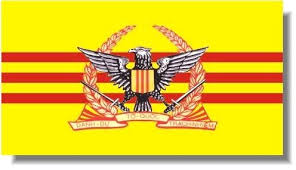
ERCOT đă tính phí quá mức 16 tỷ USD cho các công ty điện trong thời gian băo mùa đông.
Một nhà giám sát thị trường độc lập của Ủy ban Tiện ích Công cộng Texas đă viết trong một lá thư rằng nhà điều hành lưới điện đă giữ giá thị trường quá cao trong gần hai ngày sau khi t́nh trạng cúp điện trên diện rộng chấm dứt.
NGÀY 4 THÁNG 3 NĂM 2021
Một trận băo tuyết nghiêm trọng đă đổ tuyết dày khắp tiểu bang vào tháng trước, bao gồm cả khu phố Dove Springs ở Nam Austin.
Theo hồ sơ của cơ quan giám sát thị trường, Hội đồng Điện của Texas đă mắc sai sót 16 tỷ đô la trong việc định giá trong tuần băo mùa đông gây mất điện trên toàn tiểu bang.
Potomac Economics, nhà giám sát thị trường độc lập của Ủy ban Tiện ích Công cộng của Texas, cơ quan giám sát ERCOT, đă viết trong một lá thư gửi Ủy ban Tiện ích Công cộng rằng ERCOT đă giữ giá điện trên thị trường quá cao trong gần hai ngày sau khi t́nh trạng mất điện trên diện rộng kết thúc vào đêm 17 tháng Hai. Đáng lẽ ra phải đặt lại giá vào ngày hôm sau.
Cơ quan giám sát thị trường tuyên bố rằng quyết định giữ giá cao khiến các công ty điện lực Texas phải trả thêm 16 tỷ USD. Tin tức về việc tính phí quá cao lần đầu tiên được Bloomberg đưa tin.
Theo Detlef Hallermann, giám đốc Trung tâm Thương mại Năng lượng Belieant tại Đại học Texas A&M, một số nhà cung cấp bị tính phí trong thời kỳ giá cao có thể chuyển chi phí cho khách hàng, tùy thuộc vào loại hợp đồng mà họ có.
Ở Texas, giá bán buôn điện được xác định bởi cung và cầu: Khi nhu cầu cao, ERCOT cho phép giá tăng. Trong cơn băo, PUC đă chỉ đạo nhà điều hành lưới điện đặt giá bán buôn điện ở mức 9.000 USD / megawatt giờ - mức giá tối đa. Việc tăng giá nhằm khuyến khích các nhà máy phát điện trong tiểu bang cung cấp thêm điện cho lưới điện. Sau đó, các công ty mua điện từ thị trường bán buôn để cung cấp cho người tiêu dùng, điều mà khách hàng có nghĩa vụ phải trả theo hợp đồng.
Bởi v́ ERCOT không thể hạ giá xuống đúng thời hạn, các công ty phải mua điện trên thị trường với giá tăng cao.
Carrie Bivens, phó chủ tịch của Potomac Economics, công ty giám sát nhà điều hành lưới điện, viết rằng lỗi có thể sẽ dẫn đến mức giá trị mặc định cao hơn. Bà cho biết PUC nên chỉ đạo ERCOT loại bỏ các biện pháp can thiệp về giá cả xảy ra sau khi t́nh trạng ngừng hoạt động kết thúc và việc cho phép duy tŕ như vậy sẽ dẫn đến thiệt hại kinh tế "đáng kể và không công bằng".
Ít nhất 1,5 tỷ đô la có thể được tính cho các nhà cung cấp điện bán lẻ và khách hàng của họ. Một số nhà cung cấp bán lẻ đă bắt đầu nộp đơn xin phá sản.
“Họ sẽ phải chịu thiệt nhiều nhất,”
Các nhà cung cấp điện bán lẻ đă gặp khó khăn về tài chính trên khắp Texas kể từ sau cơn băo; nhiều người buộc phải mua điện trên thị trường bán buôn với giá cực cao.
Brazos Electric Power HTX Inc., Công ty điện lớn nhất Texas, đă nộp đơn xin bảo hộ phá sản sau khi gánh chịu 2,1 tỷ đô la các khoản phí tổng hợp do ERCOT, theo tài liệu của ṭa án đệ tŕnh hôm thứ Hai.
Nhiều nhà cung cấp điện bán lẻ đă phàn nàn trong hồ sơ gửi các cơ quan quản lư rằng các máy phát điện không thể sản xuất đủ điện trong cơn băo, đă trục lợi và khiến các công ty bán lẻ lao đao.
Patrick Woodson, Giám đốc điều hành của ATG Clean Energy Holdings, một nhà cung cấp điện bán lẻ có trụ sở tại Austin, đă viết cho Ủy ban Tiện ích Công cộng: “Thị trường ERCOT không được thiết kế để đối phó với trường hợp khẩn cấp ở quy mô này. Ông viết, thất bại trong việc định giá, "đă đẩy toàn bộ thị trường đến bờ vực sụp đổ."
Cathy Webking của Hiệp hội Tiếp thị Năng lượng Texas nói với các nhà lập pháp trong cuộc họp của Ủy ban Thượng viện Texas về Kinh doanh và Thương mại hôm thứ Năm rằng giá nên được đặt trở lại giá trị thị trường.
“Có nhiều vụ vỡ nợ sắp xảy ra. Webking nói.
Người phát ngôn của ERCOT từ chối b́nh luận về vấn đề này.
Kenan Ogelman, phó chủ tịch ERCOT phụ trách hoạt động thương mại, người đă làm chứng trong phiên điều trần hôm thứ Năm của ủy ban Thượng viện Texas, đă không bị các thượng nghị sĩ tiểu bang hỏi về vụ tính nhầm trị giá 16 tỷ đô la của ERCOT. Thượng nghị sĩ Kelly Hancock, R-North Richland Hills, chủ tịch ủy ban Kinh doanh và Thương mại, không cho biết ông hoặc các thượng nghị sĩ khác sẽ thực hiện hành động ǵ đối với các tác động tài chính khác nhau từ cơn băo mùa đông.
“Có những lo ngại về tài chính - hăy theo cách đó - chúng tôi sẽ phải giải quyết,” Hancock nói.
English:
ERCOT overcharged power companies $16 billion for electricity during winter freeze, firm says.
An independent market monitor for the Public Utility Commission of Texas wrote in a letter that the power grid operator kept market prices too high for nearly two days after widespread outages ended.
MARCH 4, 2021
A severe snowstorm dumped heavy snow across the state last month, including on the Dove Springs neighborhood in South Austin.
The Electric Reliability Council of Texas made a $16 billion error in pricing during the week of the winter storm that caused power outages across the state, according to a filing by its market monitor.
Potomac Economics, the independent market monitor for the Public Utility Commission of Texas, which oversees ERCOT, wrote in a letter to the Public Utility Commission that ERCOT kept market prices for power too high for nearly two days after widespread outages ended late the night of Feb. 17. It should have reset the prices the following day.
That decision to keep prices high, the market monitor claimed, resulted in $16 billion in additional costs to Texas power companies. The news of the overcharging was first reported by Bloomberg.
Some of the providers that were charged during the high price period could pass the costs to customers, depending on the type of contract they have, according to Detlef Hallermann, director of the Reliant Energy Trade Center at Texas A&M University.
In Texas, wholesale power prices are determined by supply and demand: When demand is high, ERCOT allows prices to go up. During the storm, PUC directed the grid operator to set wholesale power prices at $9,000 per megawatt hour — the maximum price. Raising prices is intended to incentivize power generators in the state to add more power to the grid. Companies then buy power from the wholesale market to deliver to consumers, which they are contractually obligated to do.
Because ERCOT failed to bring prices back down on time, companies had to buy power in the market at inflated prices.
The error will likely result in higher levels of defaults, wrote Carrie Bivens, a vice president of Potomac Economics, the firm that monitors the grid operator. She said the PUC should direct ERCOT to remove the pricing interventions that occurred after outages ended, and allowing them to remain would result in “substantial and unjustified” economic harm.
At least $1.5 billion could be passed on to retail electric providers and their customers. Some retail providers have already begun to file for bankruptcy.
“They’re going to suffer the most,” Hallermann said.
Retail power providers have been in financial distress across Texas since the storm; many were forced to buy power on the wholesale market at extremely high prices.
Brazos Electric Power Cooperative Inc., Texas’ largest power cooperative, has already filed for bankruptcy protection after incurring $2.1 billion in combined charges owed to ERCOT, according to court documents filed Monday.
Many retail power providers complained in filings to regulators that generators of electricity, which were unable to produce enough power during the storm, profited and left retail companies scrambling.
“The ERCOT market was not designed to deal with an emergency of this scale,” wrote Patrick Woodson, CEO of ATG Clean Energy Holdings, a retail power provider based in Austin, to the Public Utility Commission. The pricing failure, he wrote, “has pushed the entire market to the brink of collapse.”
Bivens wrote that while she recognizes that retroactively revising the prices is “not ideal,” correcting the error will reflect the accurate supply and demand for power during the period after the outages.
Cathy Webking of the Texas Energy Association for Marketers told lawmakers during a Texas Senate Committee on Business and Commerce meeting Thursday that prices should be set back to what the market value would have been.
“There are more defaults imminent. Immediate action is required,” Webking said.
A spokesperson for ERCOT declined to comment on the matter.
Kenan Ogelman, the ERCOT vice president of commercial operations, who testified during a Texas Senate committee hearing Thursday, was not asked by state senators about ERCOT’s $16 billion mistake. Sen. Kelly Hancock, R-North Richland Hills, who chairs the Business and Commerce committee, did not indicate what action he or other senators would take on the various financial ripple effects from the winter storm.
“There are financial concerns — let’s put it that way — that we have to address,” Hancock said.






























